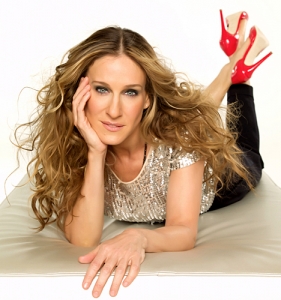Hymowitz says the proliferation of SYF culture is being driven by a few factors. Namely that they are pushing off marriage well into their thirties. She notes that in 1970 just 7.4 percent of all American 30-to-34-year-olds were unmarried; today, that number has increased threefold to 22 percent.
The trend is hugely promising, because it means that women are spending more time investing in their careers, hopefully paving the way for women earning 77 cents to the dollar to become an anachronism.
 But let’s not kid ourselves; this piece could not just focus on the career inroads that young women are making. There had to be some mention of what I think most young women saw as the salient, or at least most compelling, storyline of Sex and the City: The search for Mr. Right.
But let’s not kid ourselves; this piece could not just focus on the career inroads that young women are making. There had to be some mention of what I think most young women saw as the salient, or at least most compelling, storyline of Sex and the City: The search for Mr. Right.
While The New Girl Order is about having unprecedented earning power and multiple degrees, it’s also, Hymowiz says, sprinkled with “gyms for toning and male-watching: ski resorts and beach hotels; and, everywhere, the frustrating hunt for a boyfriend, and though it’s an ever more vexing subject, a husband.” And remind me why we can’t talk about young women and careers without talking about the hunt for a husband?
Here’s what vexes more (yes, even more than a hunt for a husband). It’s the cultural icons that have come to embody The New Girl Order. The Carrie Bradshaw character has little resemblance to the young women I know in this demographic. They are able to conduct simple arithmetic and, for the most part, manage their money. Carrie Bradshaw, however, realizes she spent the down payment on her apartment on shoes, only after Miranda correctly does the multiplication for her.
Then we have Bridget Jones, perhaps even more iconic than Bradshaw. Hymowitz notes that The Economist coined a term called the Bridge Jones economy. Jonesers, like Bradshaws, spend their disposable income on whatever is fashionable, frivolous, and fun. Jones, though, if you remember, is always “on the edge of reason,” making a mockery of herself and a series of bad decisions about men that also lead her into an array of career compromising situations.
Hymowitz is right that there is much to admire in the New Girl Order. If only we could say the same for the women that seem to personify it.